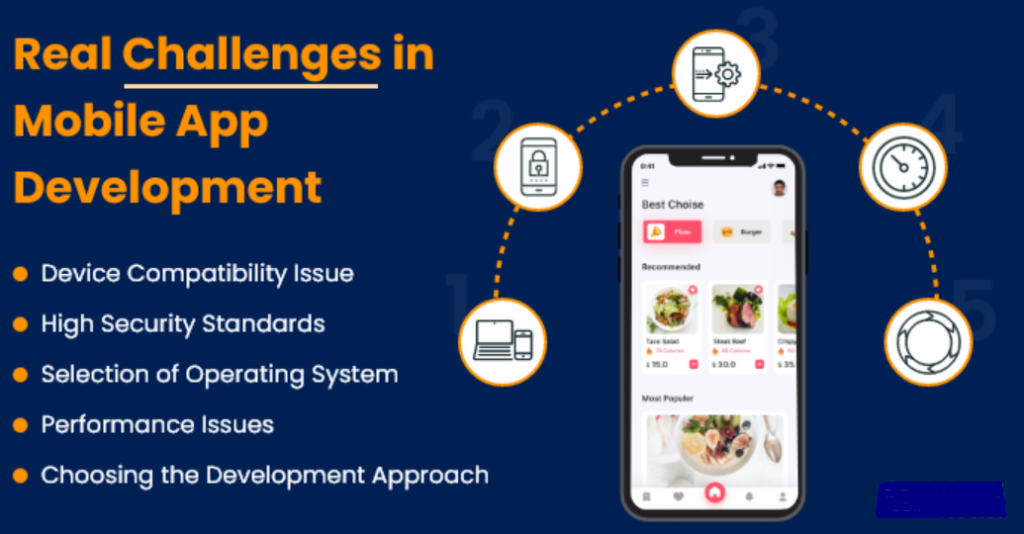As the mobile development landscape continues to evolve, the demand for AI-driven tools has surged. Developers across the globe are leveraging Generative AI (GenAI) products to enhance their workflows, streamline processes, and deliver innovative applications. However, a one-size-fits-all approach to GenAI product development often falls short of meeting the diverse needs of mobile developers. To maximize the potential of these tools, it’s essential to tailor GenAI products specifically for different mobile developer personas.
Understanding the Diverse Personas of Mobile Developers
Mobile developers are not a monolithic group; they have varying expertise, goals, and challenges. Some are seasoned professionals with years of experience in coding and app design, while others may be beginners or mid-level developers still honing their skills. Additionally, developers often specialize in different platforms, such as iOS or Android, which further influences their requirements for GenAI tools.
To create effective GenAI products, it’s crucial to first understand these diverse personas. For instance, a junior developer might prioritize ease of use and extensive documentation, while a senior developer may seek advanced features and customization options. Understanding these nuances allows product designers to create tools that cater to each group’s unique needs.
The Role of Personalization in GenAI Products
Personalization is at the heart of tailoring GenAI products for different mobile developer personas. When GenAI tools are designed with specific user groups in mind, they can offer more relevant suggestions, code snippets, and solutions. For instance, an AI-powered code completion tool can be customized to offer more beginner-friendly suggestions for less experienced developers or more advanced, complex recommendations for veteran coders.
Moreover, personalization extends beyond just the technical aspects. The user interface and overall experience should also reflect the preferences and habits of the targeted persona. A clean, minimalistic interface might appeal to seasoned developers who prefer efficiency, while a more guided, tutorial-rich interface could be beneficial for beginners.
Integrating GenAI into Mobile Development Workflows
Another critical aspect of tailoring GenAI products for mobile developers is integration. Developers use a variety of tools and platforms in their daily workflows, including integrated development environments (IDEs), version control systems, and project management tools. A GenAI product that seamlessly integrates with these existing tools will likely see higher adoption rates.
For instance, an AI-driven debugging tool that integrates directly with popular IDEs like Xcode or Android Studio would be more valuable to developers than a standalone tool. Similarly, a GenAI product that syncs with GitHub or GitLab could offer contextual code suggestions based on a developer’s repository history, making the tool more intuitive and effective.
Addressing the Unique Challenges of Mobile Developers
Mobile developers face unique challenges that set them apart from other types of software developers. These include platform-specific constraints, varying device capabilities, and the need for optimal performance. A tailored GenAI product must address these challenges head-on.

For example, mobile developers often need to optimize their apps for battery efficiency, a concern that desktop or web developers might not prioritize. A GenAI tool designed with mobile developers in mind could offer suggestions for optimizing code to reduce battery consumption. Additionally, the tool could help developers navigate the complexities of different mobile operating systems, ensuring that their apps perform consistently across iOS and Android devices.
Enhancing Collaboration Among Mobile Development Teams
Collaboration is a key component of successful mobile app development. Teams of developers, designers, and product managers must work together to create a cohesive product. GenAI tools can be tailored to facilitate this collaboration by offering features that support team-based workflows.
For instance, a GenAI product could include shared code libraries or collaborative debugging tools that allow team members to work on the same piece of code simultaneously. It could also offer project management features that help teams track progress, assign tasks, and manage deadlines, all within the same platform. By tailoring GenAI products to support collaboration, developers can work more efficiently and effectively as a team.
Keeping Up with the Rapid Pace of Mobile Development
The mobile development industry is characterized by rapid change. New devices, operating system updates, and emerging technologies continually reshape the landscape. GenAI products must be agile enough to keep pace with these changes, offering developers the tools they need to stay ahead of the curve.
To achieve this, GenAI products should be designed with flexibility and scalability in mind. For example, an AI-driven tool that assists with app testing should be able to quickly adapt to new device models and operating system versions. Similarly, a GenAI product that provides design suggestions should be updated regularly to reflect the latest UI/UX trends in mobile development.
The Importance of Continuous Learning and Improvement
As with any AI-driven technology, continuous learning and improvement are essential for GenAI products tailored to mobile developers. These tools must be capable of learning from user interactions and improving over time. By analyzing how different developer personas use the tool, product designers can make informed decisions about updates and new features.
For instance, if a GenAI product notices that a large number of developers are struggling with a particular aspect of mobile app design, it could offer targeted tutorials or tips to help users overcome these challenges. This continuous feedback loop ensures that the GenAI product remains relevant and useful to its users, regardless of their skill level or specialization.
Conclusion: Crafting the Future of GenAI for Mobile Developers
Tailoring GenAI products for diverse mobile developer personas is not just a trend; it’s a necessity. As the mobile development industry continues to grow and evolve, so too must the tools that developers rely on. By understanding the unique needs of different developer personas, personalizing the user experience, integrating with existing workflows, and staying agile in the face of industry changes, GenAI products can truly empower developers to reach new heights in their work.
In the end, the goal is to create GenAI tools that not only meet the technical requirements of mobile developers but also enhance their overall experience, making the process of app development more efficient, intuitive, and enjoyable. The future of mobile development is bright, and with the right GenAI tools, developers of all levels can be part of that exciting journey.


